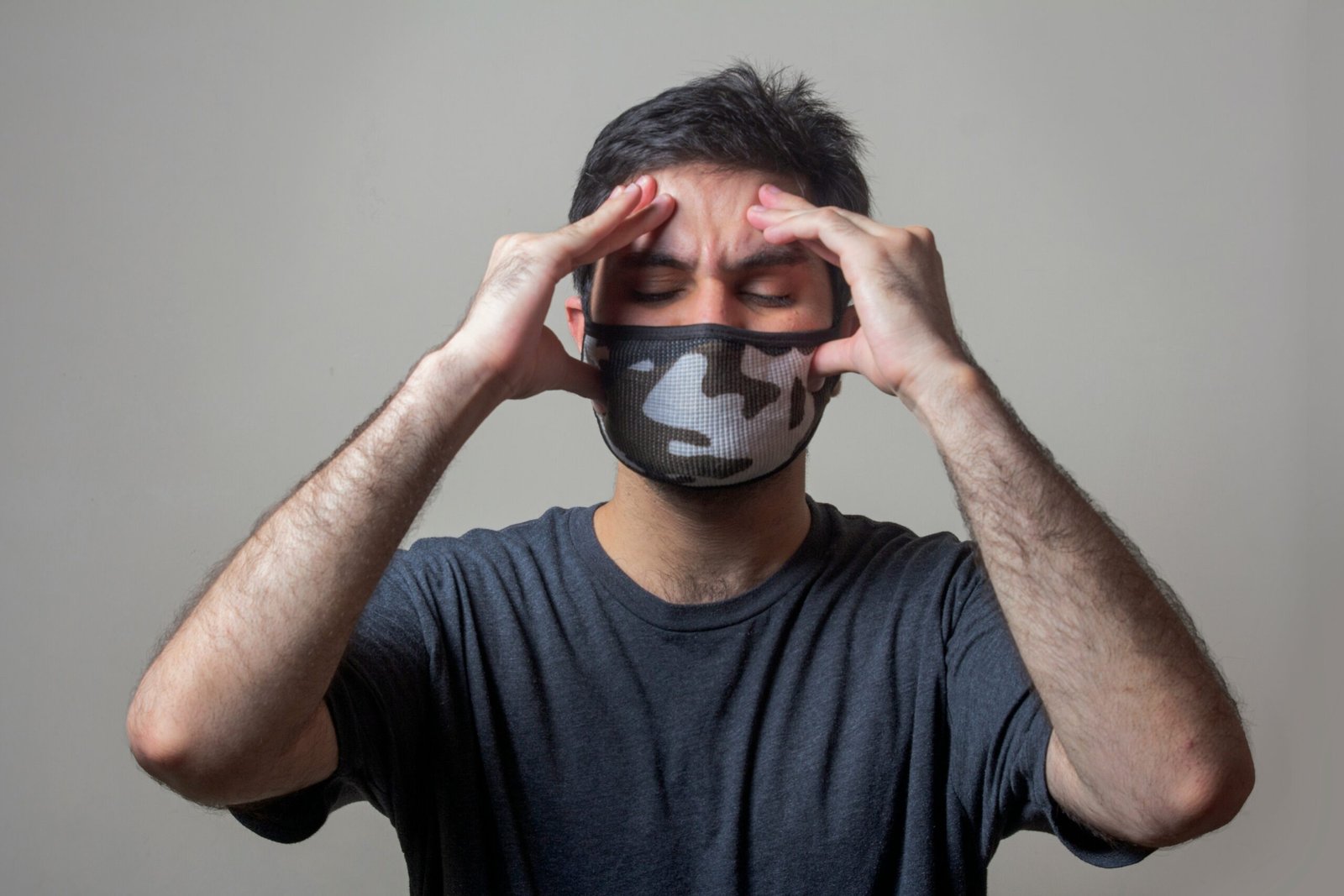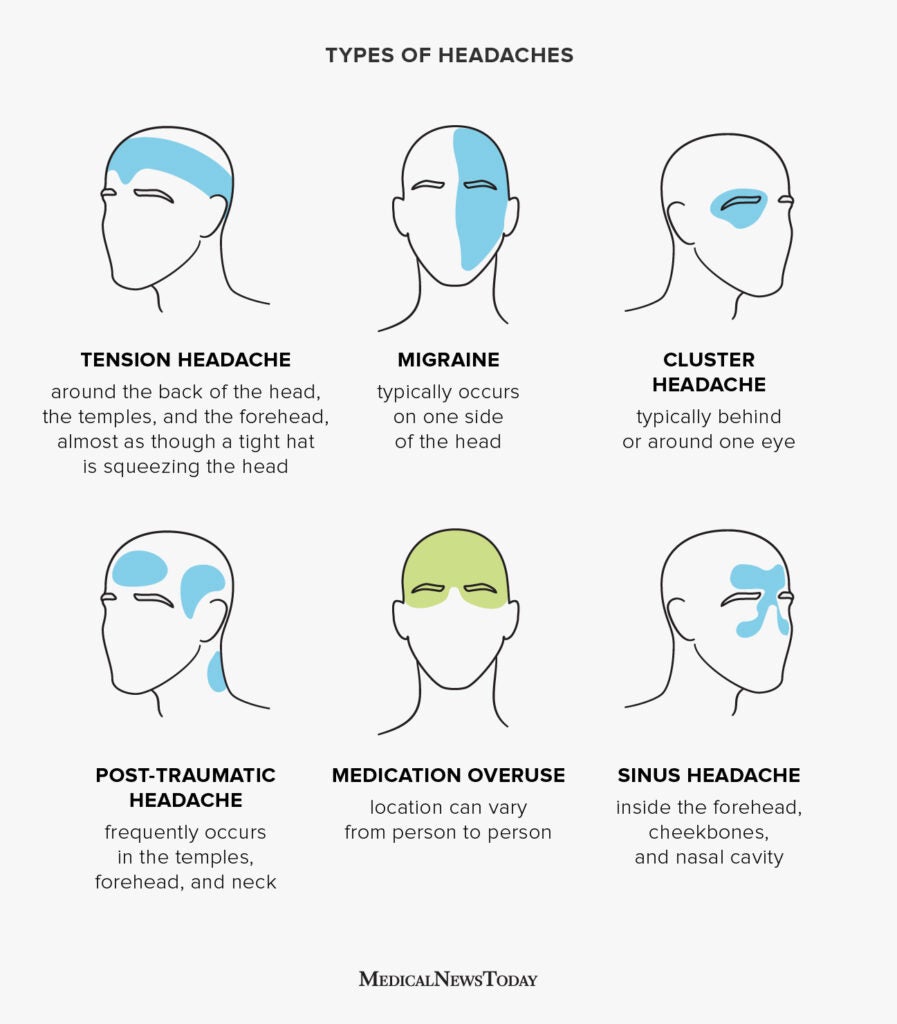
Headaches are a common ailment that can range from mild to severe, and they can have a significant impact on our daily lives. Identifying the type of headache you have is crucial in determining the most effective treatment and finding relief. In this article, we will explore the different types of headaches and provide you with some early steps to take for each.

Tension Headaches
Tension headaches are the most common type of headache experienced by individuals. They are often described as a dull, aching pain that feels like a tight band around the head. Stress, poor posture, and muscle tension are common triggers for tension headaches.
If you suspect you have a tension headache, here are some early steps you can take:
- Take a break: If you have been sitting in one position for an extended period, take a short break and stretch your neck and shoulder muscles.
- Practice relaxation techniques: Deep breathing exercises, meditation, and progressive muscle relaxation can help alleviate tension and reduce headache symptoms.
- Apply a warm compress: Placing a warm compress on your forehead or the back of your neck can help relax tense muscles and provide relief.
- Over-the-counter pain relievers: Non-prescription pain relievers such as acetaminophen or ibuprofen can help relieve mild to moderate tension headaches. However, it is important to follow the recommended dosage and consult a healthcare professional if your symptoms persist.
Migraine Headaches
Migraine headaches are characterized by intense, throbbing pain, often on one side of the head. They are usually accompanied by other symptoms such as nausea, sensitivity to light and sound, and visual disturbances. Migraines can be triggered by various factors, including hormonal changes, certain foods, stress, and sensory stimuli.
If you suspect you have a migraine headache, here are some early steps you can take:
- Find a quiet, dark environment: Migraine headaches are often worsened by bright lights and loud noises. Finding a calm and quiet space can help alleviate symptoms.
- Apply a cold compress: Placing a cold compress or ice pack on your forehead or the back of your neck can help numb the pain and reduce inflammation.
- Try relaxation techniques: Techniques such as deep breathing, progressive muscle relaxation, and guided imagery can help relax your body and ease migraine symptoms.
- Consider over-the-counter medications: Non-prescription pain relievers specifically formulated for migraines, such as those containing aspirin, acetaminophen, and caffeine, may provide relief. However, it is important to consult a healthcare professional if your symptoms persist or worsen.
Cluster Headaches
Cluster headaches are a rare but extremely painful type of headache that occur in cyclical patterns or clusters. They are often described as an intense burning or piercing pain, usually around one eye. Cluster headaches can be triggered by alcohol consumption, certain medications, and changes in sleep patterns.
If you suspect you have a cluster headache, here are some early steps you can take:
- Find a quiet and dark environment: Similar to migraines, cluster headaches are worsened by bright lights and loud noises. Creating a calm and soothing environment can help reduce the intensity of the pain.
- Apply a cold compress: Placing a cold compress or ice pack on the affected area can help numb the pain and provide temporary relief.
- Consider oxygen therapy: Inhaling pure oxygen through a mask for a short period can help alleviate cluster headache symptoms for some individuals. Consult a healthcare professional to explore this option.
- Seek medical advice: Cluster headaches often require medical intervention for effective management. If you experience cluster headaches, it is crucial to consult a healthcare professional to discuss appropriate treatment options.
It is important to note that the information provided in this article is for informational purposes only and should not replace professional medical advice. If you experience severe or persistent headaches, it is recommended to consult a healthcare professional for a proper diagnosis and treatment plan.
Talk to Our Doctors
By identifying the type of headache, you have and taking early steps to alleviate the symptoms, you can improve your overall well-being and minimize the impact of headaches on your daily life.




